Earth Etude for Elul 15: Reverse Tashlich
by Karen L. Grossman
Growing up near Pennsylvania woods and traveling to many beautiful national parks in this country and worldwide, I learned to appreciate nature. After my career as a helping professional, I delved deeper into fostering my love of environmental beauty and caring for people through a local park group and a watershed association.
With recent experiences, I’ve come to understand that just as there are natural connections among animals, trees and plants, a watershed connects communities from suburban to urban, wealthy to impoverished. I’ve seen how working with a watershed association can help create the essential healthy environment for all waterbodies: oceans, rivers, brooks, lakes and ponds, cleaning up the watershed and promoting social equity.
I was inspired by reading about “Reverse Tashlich,” collecting trash from the ocean’s shoreline, literally gathering the “sins” of others instead of (or in addition to) throwing away our own sins figuratively, “Tashlich” during Elul and the High Holidays. I thought of implementing such an effort in my area, especially with social justice issues coming to the forefront lately.
With my watershed association’s help, I can promote not just the collection of trash, but many other actions:
Planting rain gardens to filter rainwater and diminish flooding,
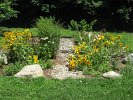
Establishing more greenways along waterbodies for biking and walking and creating public access,

And pulling water chestnuts to establish healthier rivers that can be navigated.
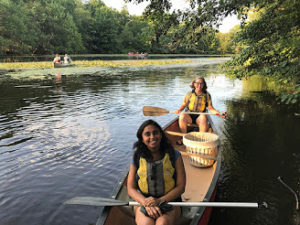
The Watershed Association monitors illegal pollution into waterbodies. We discourage the use of phosphorus fertilizers from which stormwater runoff produces weed and algae growth and even toxins that are harmful to higher forms of life. Addition actions are:
advocating environmentally healthy weed treatment,

eliminating invasive plants throughout so natural vegetation can thrive to prevent shoreline erosion,
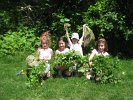
planting trees in urban areas to create shade and reduce global warming,
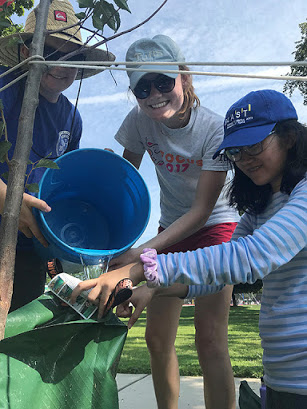
and, yes, collecting litter at its source on our streets, in our parks, and in waterbodies, thus, providing more beautiful recreational opportunities, and healthier habitats for all wildlife and for us, too, of course.
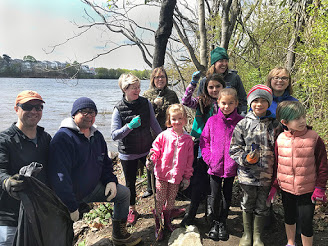
“Reverse Tashlich” can anchor Jewish community efforts to care for the health of our natural environment. What we do up stream in a watershed can have a major impact in more urban, social justice communities downstream. As you may know, Covid-19 has a greater impact in those areas partly because the environment is unhealthy. So, our efforts take away the “sin” of those who do not care for the earth and help to repair the world, “Tikkun Olam.” That’s really the goal of “Reverse Tashlich.”
It is a mitzvah to promote “Reverse Tashlich” with friends and temple members in your area as September and the High Holidays draw near, as well as to engage in year-round activities with your watershed association, too.
Karen L. Grossman is a retired speech and language pathologist, a member of Temple Shir Tikvah, Winchester, MA’s Adult Social Committee, past Board member of the Mystic River Watershed Association, presently on the Outreach and Development Committees, and President of the Friends of Spy Pond Park, Arlington, MA. She welcomes your comments to to karen@klgwoman.com regarding the above ideas and refers you to:
https://www.repairthesea.org/reverse-tashlich, the inspiration for this etude.

Got something to say?
You must be logged in to post a comment.